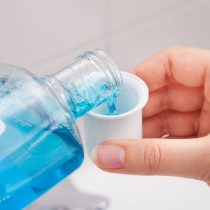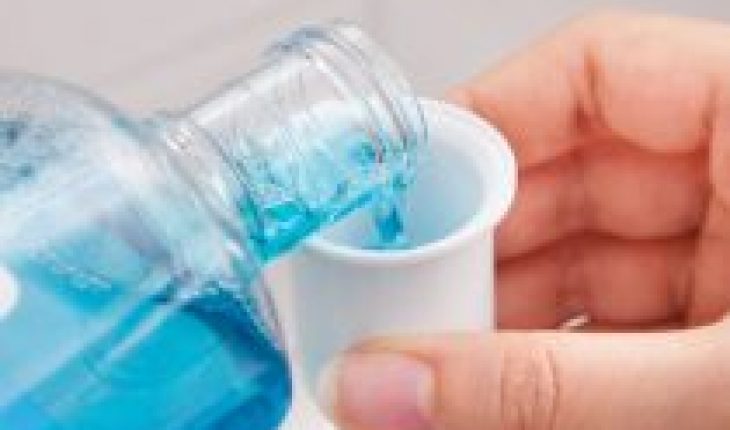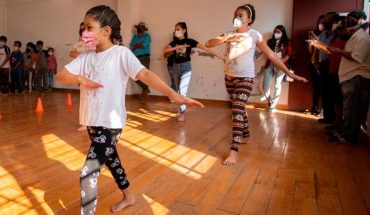
The new variants of SARS-CoV-2 are of concern to the scientific community as they may compromise the expected herd immunity, increase the transmission of the virus and even complicate the severity of Covid-19.
Now, researchers from the Pista group of IrsiCaixa, a center promoted jointly by the “la Caixa” Foundation and the Department of Health of the Generalitat de Catalunya, in collaboration with dentaid Research Center, expanded previously carried out studies and concluded that Cetilpiridinium Chloride (CPC), a chemical component present in some colutoriums, reduces more than 1,000 times the infection capacity of the alpha variant of SARS-CoV-2.
The results of the study, published in the scientific journal Journal of Dental Research, show that the antiviral action of CPC occurs thanks to its ability to break the membrane of the virus and, therefore, prevent it from entering cells. Thanks to its mechanism of action, CPC would be effective against any variant of SARS-CoV-2.
On the other hand, and with the aim of simulating reality as much as possible, the researchers demonstrated that CPC is still effective in the presence of sterilized saliva. These results shed light on the human efficacy trial, coordinated by the Foundation to Fight AIDS and Infectious Diseases (FLS), in which they evaluate whether CPC is capable of decreasing viral load in humans.
“Being able to demonstrate that the effectiveness of CPC is maintained against the different variants of SARS-CoV-2 is crucial. Currently, variants such as Delta are of concern due to their high transmissibility and, therefore, the ability to cause new waves and collapse the health system more quickly than the original virus variant, “says the coordinator of the study and principal investigator of the Pista group, Nuria Izquierdo-Useros.
“That is why finding a tool like the colutorios that can be easily distributed to all countries would be very useful to reduce the transmission speed of the variants,” adds Jordana Muñoz-Basagoiti, first author of the work together with Daniel Perez-Zsolt.
Results
After demonstrating that it is CPC, and no other component of mouthwashes, that is responsible for reducing the infectious capacity of SARS-CoV-2, the research staff confirms in a new study conducted in the laboratory that the antiviral activity of CPC allows it to reduce more than 1,000 times the infectivity not only of the SARS-CoV-2 variant described in March 2020, but also of the Alpha variant.
These results take a step further than the previous study since, during the experiment, sterilized human saliva has been included, and this allows to confirm that the mouthwash with CPC does not lose effectiveness in an environment similar to that of the oral cavity.
This would give effectiveness to all variants thanks to its mechanism of action.
Vaccines typically target the spike protein, a protein needed for SARS-CoV-2 to enter human cells. It is precisely in this protein that the new variants of the virus have modifications and, therefore, could cause the immunity of the vaccines designed in March 2020 to be compromised.
However, irsiCaixa’s research staff has been able to confirm in this new study that the antiviral activity of CPC is not directed at the spicule protein, but focuses on destabilizing the membrane of the virus, favoring its rupture.
“Through different laboratory techniques, the Izquierdo-Useros team has been able to confirm that the mechanism of action of CPC consists in breaking the membrane of the virus, without attacking any specific protein,” says the director of IrsiCaixa, Bonaventura Clotet.
“That CPC is not targeted at specific proteins in the SARS-CoV-2 membrane is positive because this way we can make it effective against any variant of the virus,” clotet adds.
Oral health
“These new data confirm, once again, the important role that oral cavity care plays in good overall health. In the same way that a close relationship of the mouth with cardiovascular diseases and diabetes has been determined, we can confirm that there is a clear relationship between the oral cavity and Covid-19”, concludes Joan Gispert, Director of R&D&I at Dentaid.
In order to demonstrate that these results obtained in the laboratory can be extrapolated to people with Covid-19, a CPC-Covid efficacy trial has been conducted, coordinated by FLS. The results of the trial are currently being analysed, which could demonstrate that the use of the 1- to 2-minute gable and gargarisms are sufficient to effectively decrease the infectivity of SARS-CoV-2 in saliva, especially during the first two weeks after infection, which is when the viral load is highest and, therefore, people are more contagious.
This tool could be useful in slowing the chain of transmission and contagion, and preventing future waves.





